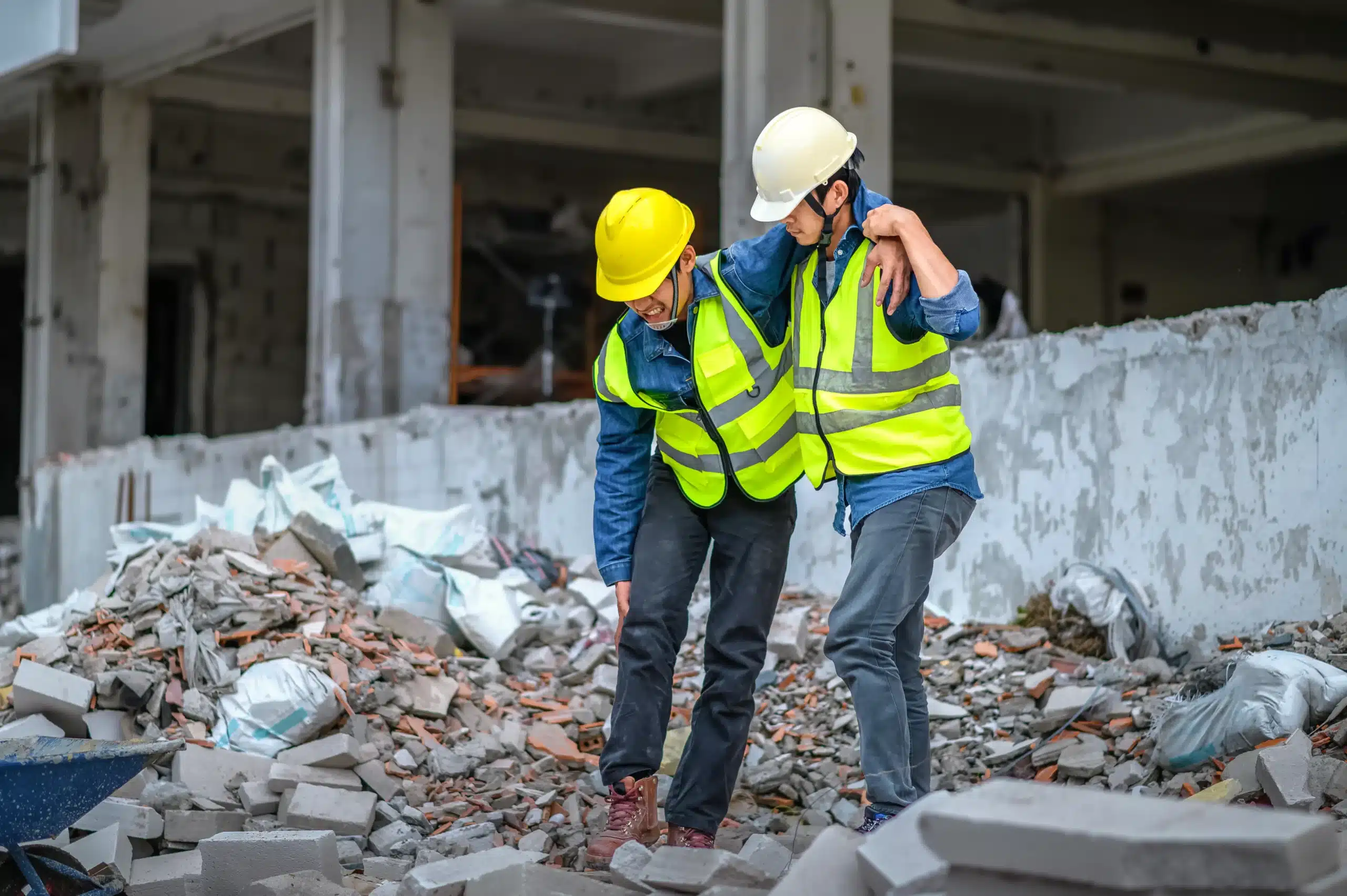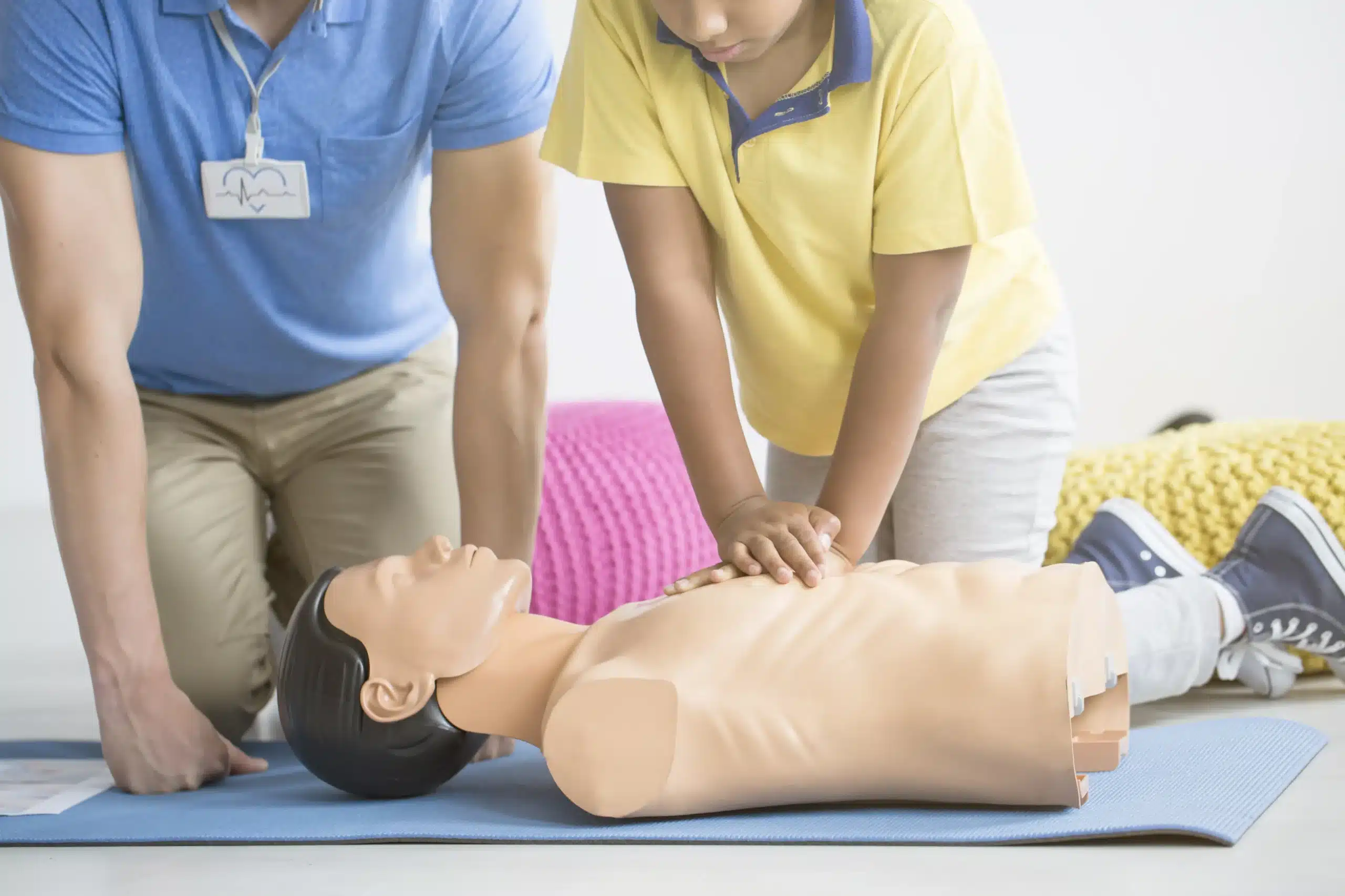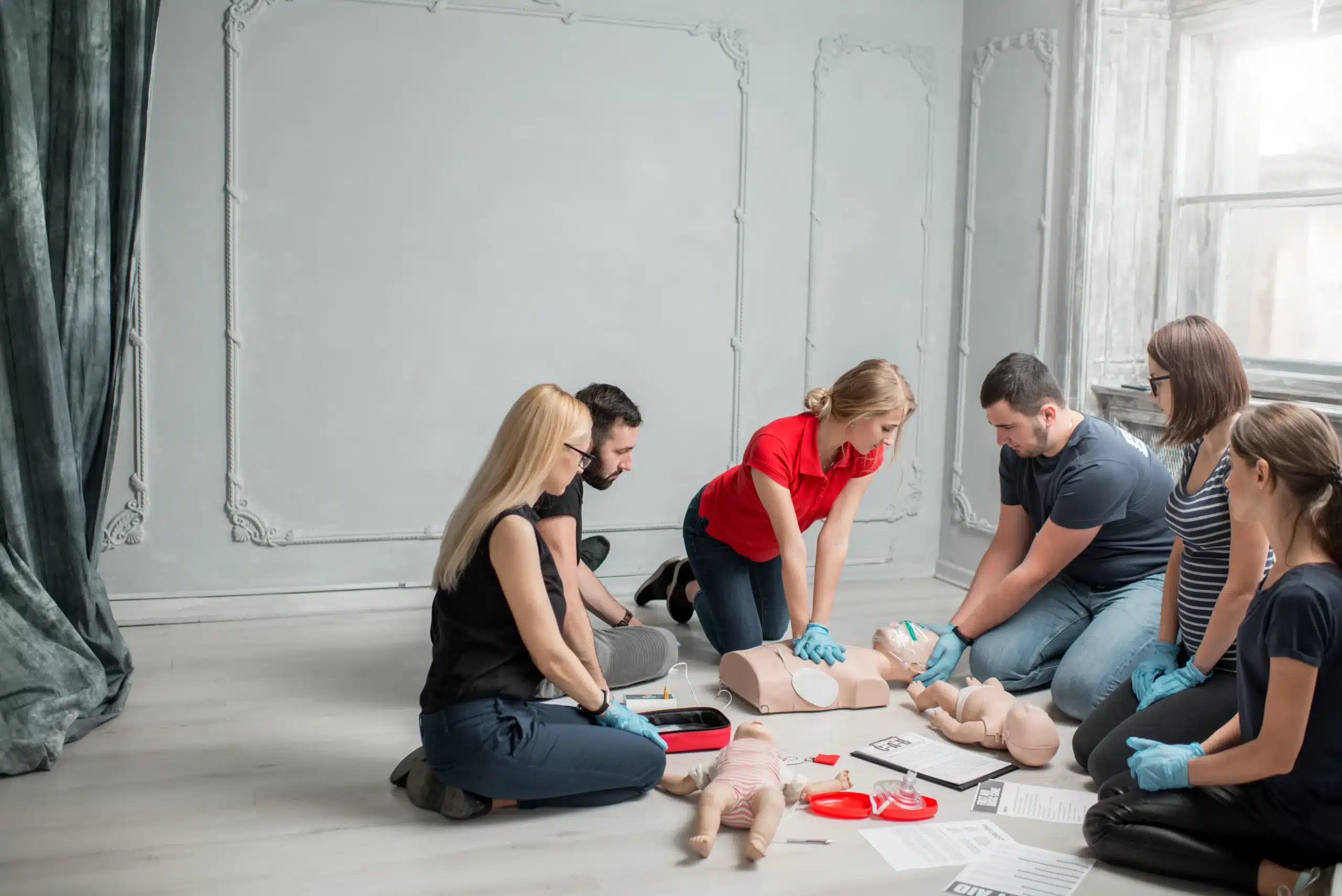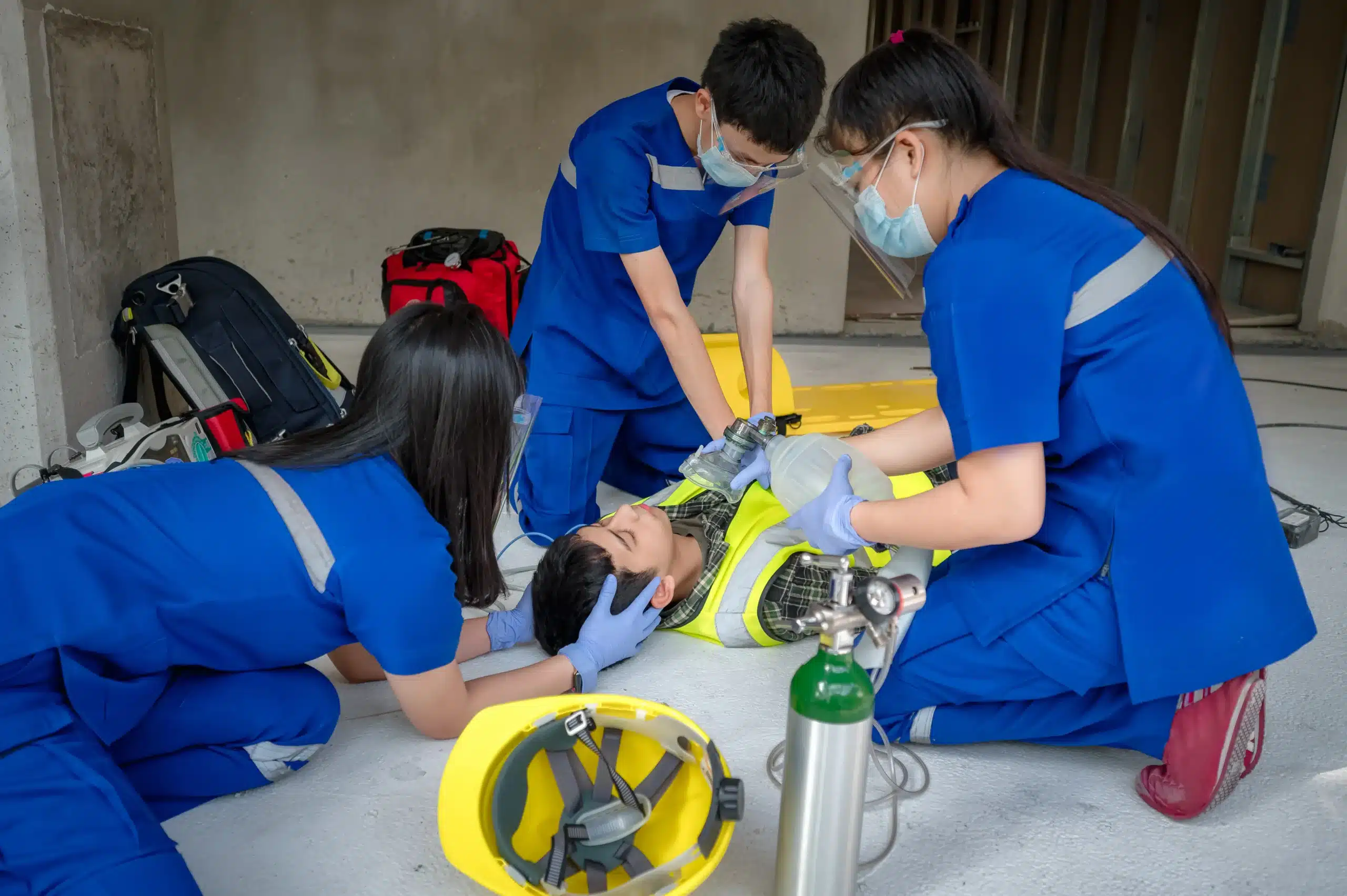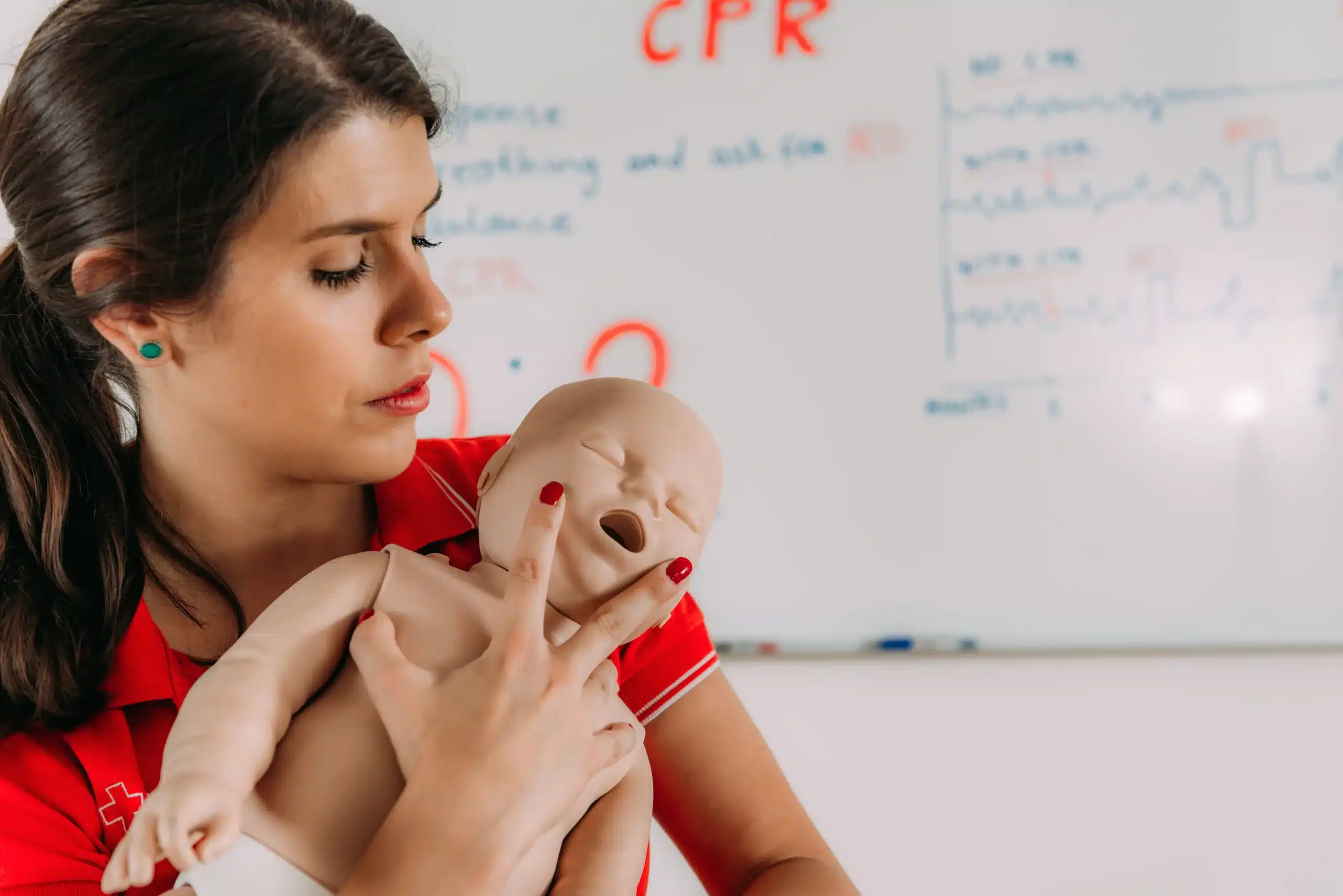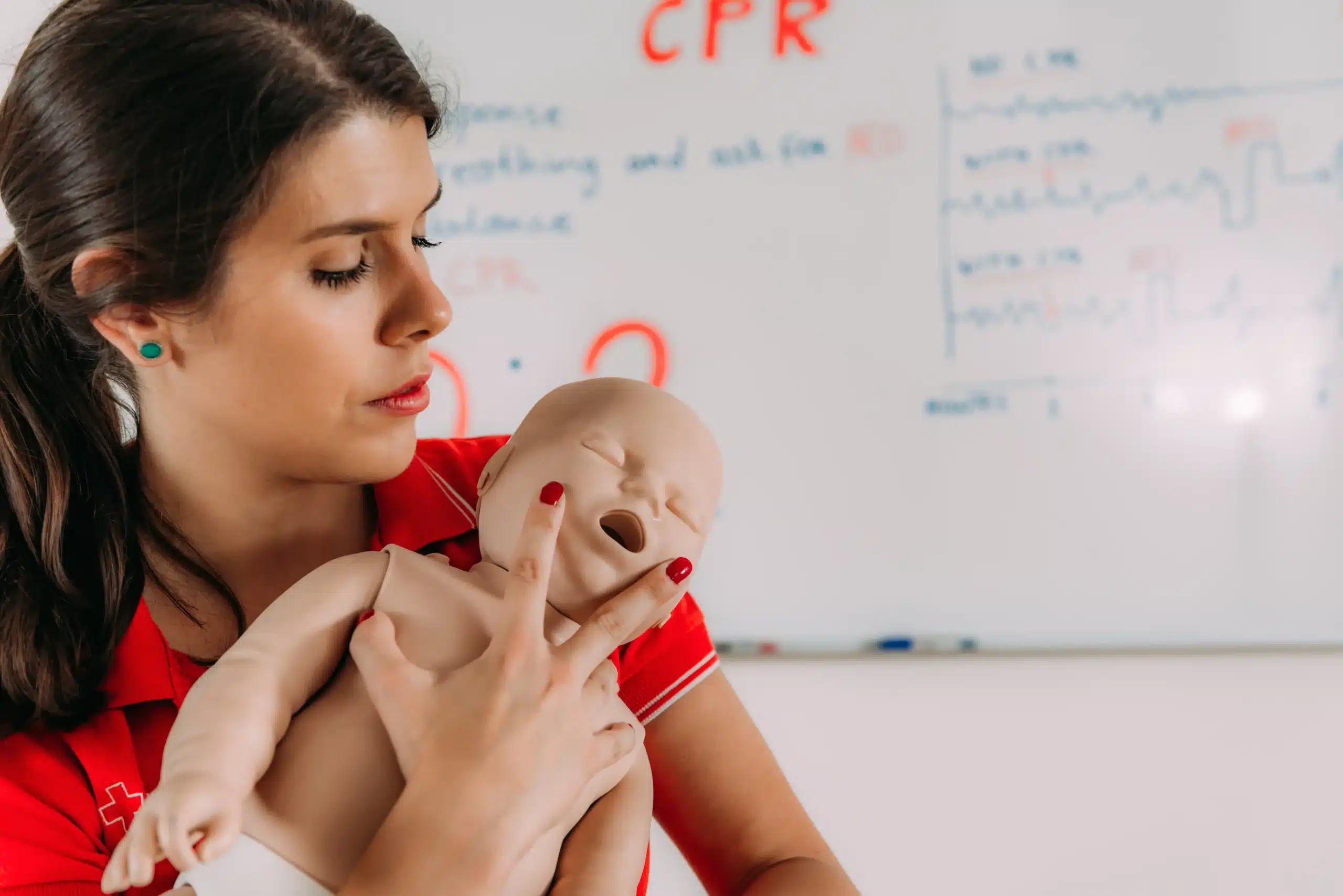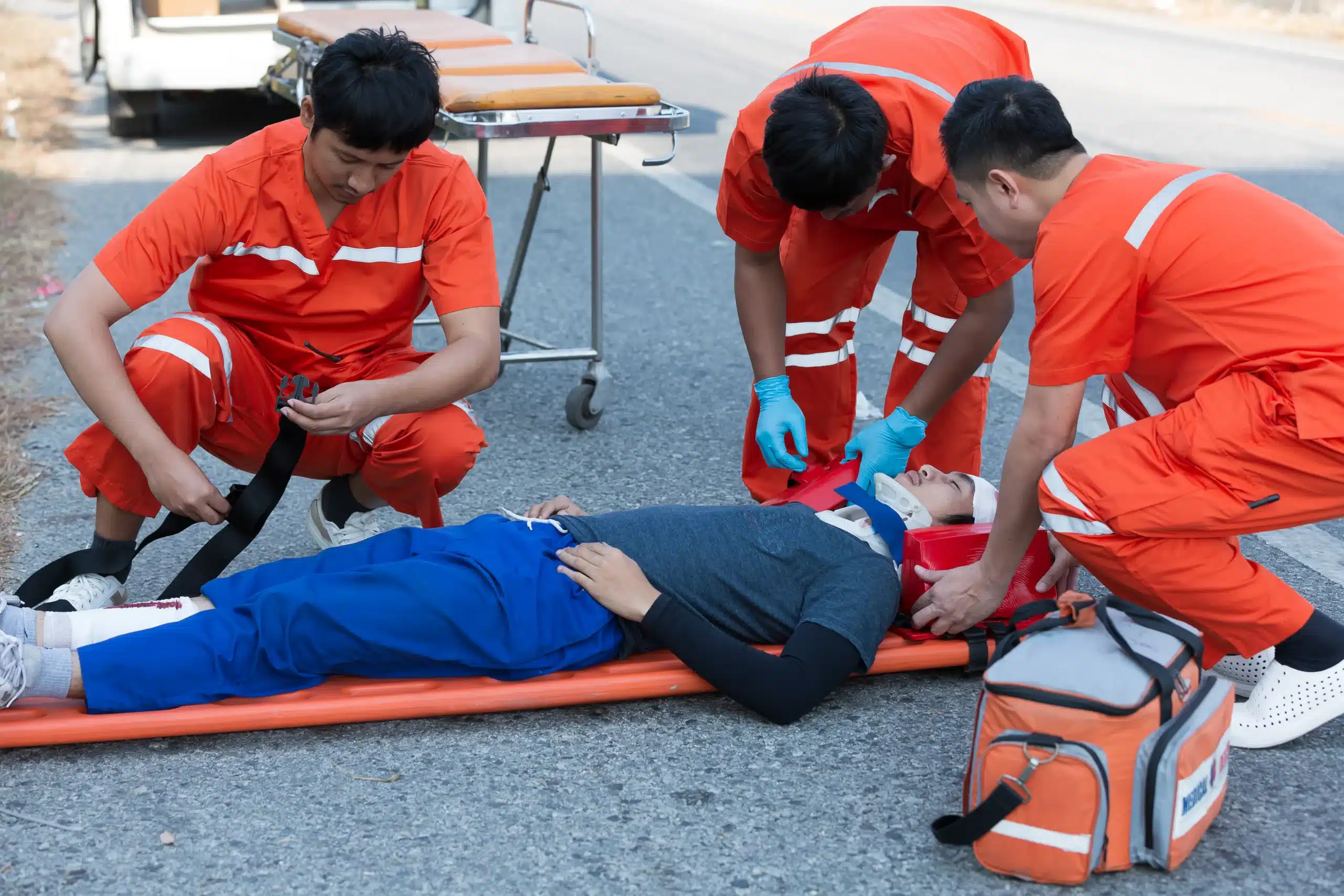Life as a healthcare professional is busy, and staying certified in BLS can easily slip through the cracks. But those crucial skills are the first line of defense in emergencies. This guide focuses on making BLS renewal in Carmichael straightforward and accessible. We’ll break down the process, discuss the various learning formats available (in-person, online, blended), and highlight reputable providers in Carmichael, such as Safety Training Seminars, offering convenient daily classes and a low-price guarantee. Let’s make sure your BLS skills are always sharp, so you can respond confidently when it matters most.
Key Takeaways
- BLS skills are essential for responding to medical emergencies. Regular renewal keeps your CPR, AED, and first-aid knowledge sharp, ensuring you can act quickly and confidently when needed.
- Choose a BLS renewal course that fits your learning style and schedule. Options include in-person, online, and blended learning formats, so consider what works best for you.
- Maintaining current BLS certification demonstrates your commitment to providing high-quality care. It also keeps you compliant with employer requirements and allows you to pursue advanced certifications.
What is BLS & Why Renew?
BLS Explained
BLS (Basic Life Support) is a crucial set of life-saving protocols and skills used in medical emergencies. These skills are the foundation for responding to life-threatening situations like cardiac arrest, respiratory distress, and choking. BLS certification equips you with the knowledge to perform CPR, use an AED, manage a patient’s airway, and communicate effectively within a team. It’s about being prepared to act quickly and confidently when every second counts. For more information, check out our page on CPR and First-Aid certification.
Benefits of Renewing
Renewing your BLS certification isn’t just about checking a box; it’s about maintaining your skills and staying prepared for emergencies. Regular practice and updated knowledge are key to providing effective care. Staying current with the latest American Heart Association guidelines is critical, as procedures and best practices can evolve. Refresher courses reinforce your training, address any knowledge gaps, and help you adapt to new protocols. A current certification also demonstrates your commitment to providing high-quality care and often satisfies employer requirements. Maintain your skills and confidence—take a look at our low price guarantee for the best value on your BLS renewal. We also offer EMSA Child Care Health and Safety training for childcare providers.
Best BLS Renewal Providers in Carmichael
Finding the right BLS renewal course can feel overwhelming, but several excellent providers in Carmichael can help you stay current. Here are a few options:
Safety Training Seminars
Safety Training Seminars, a woman-owned American Heart Association Training Center, offers high-quality BLS, ACLS, PALS, CPR, and First Aid courses in Carmichael. They prioritize convenience, with daily classes in Carmichael and surrounding areas like Rancho Cordova and Fair Oaks. Their commitment to excellent customer service and a low price guarantee makes them a popular choice.
American Red Cross
The American Red Cross offers BLS renewal and recertification courses to help healthcare professionals maintain their certifications. These courses are designed for those with current certifications or certifications that have expired within the last 30 days.
Professional CPR
Professional CPR offers various CPR, BLS, AED, and First Aid training classes in Carmichael. They provide certifications for both healthcare professionals and the general public.
Local Hospitals and Medical Centers
Local hospitals and medical centers often provide BLS renewal courses for their staff and may offer community classes. These courses typically follow the latest guidelines and standards. Contact your local hospitals directly to learn about course schedules and availability.
Choosing the Right BLS Renewal Course
In-Person vs. Online
When considering a BLS renewal course, one of the first decisions you’ll face is whether to attend an in-person class or take the course online. Both options offer distinct advantages. In-person classes provide hands-on learning and direct interaction with an instructor, allowing for immediate feedback and clarification. Online courses offer flexibility and convenience, letting you learn at your own pace and on your own schedule. Providers like the American Red Cross offer both options, so you can choose the format that best suits your learning style and availability.
Blended Learning
Blended learning offers a compelling alternative, combining online convenience with in-person practice. You complete the cognitive portion of the course online at your own speed, then attend a shorter, in-person session for a skills check and hands-on practice. This approach can be particularly appealing for those who prefer the flexibility of online learning but also value the reinforcement of in-person instruction. This blended learning format often streamlines the renewal process.
Course Length & Content
BLS renewal courses are designed to refresh your knowledge and skills, so they are generally shorter than initial certification courses. Most online renewal courses take between one and two hours to complete, followed by a separate skills check that typically lasts under an hour. Make sure the course you choose covers the essential components of BLS, including CPR for adults, children, and infants, use of an AED, and relief of choking. Confirm the course aligns with the current American Heart Association guidelines.
Latest BLS Guidelines
Staying up-to-date with the latest BLS guidelines is critical for providing effective care. Guidelines are periodically updated to reflect the most current scientific evidence and best practices. Ensure your chosen course incorporates the latest recommendations from the American Heart Association, including any revisions to CPR techniques or protocols. This ensures you’re equipped with the most current knowledge and skills to respond confidently in emergency situations.
How to Renew Your BLS Certification
Renewing your Basic Life Support (BLS) certification is essential for healthcare professionals, first responders, and anyone who needs to maintain their life-saving skills. This straightforward process ensures you stay up-to-date with the latest guidelines and best practices. Let’s break down how to renew your BLS certification smoothly and efficiently.
Renewal Prerequisites
Before jumping into renewal, it’s helpful to understand the prerequisites. Generally, you’re eligible to renew your BLS certification if your current certification is still active or recently expired. One common challenge is staying informed about changes in guidelines and procedures, so be sure to check the American Heart Association website for the most current information. Another factor to consider is the cost of training and certification. Check with different providers, like Carmichael CPR Classes, for their pricing and any available discounts. They even offer a low price guarantee.
Step-by-Step Guide
Here’s a practical guide to help you through the BLS renewal process:
-
Find an AHA BLS Training Center: Locate a certified training center offering BLS renewal courses. For those in the Carmichael, Rancho Cordova, and Fair Oaks areas, Carmichael CPR Classes is a convenient option. While all BLS courses cover core skills, consider whether a provider offers any specialized training relevant to your field. For example, they also offer EMSA Child Care Health & Safety training.
-
Register for a BLS Renewal Course: Once you’ve chosen a provider, register for their BLS renewal course. Many providers offer flexible scheduling, including weekend and evening classes, to accommodate busy professionals.
-
Complete the Course: Attend the renewal course, which typically includes hands-on practice and a review of essential BLS skills. Active participation is key to refreshing your knowledge and mastering the techniques.
Exam & Certification
Most BLS renewal courses conclude with a written exam and a skills test. Successfully completing both components demonstrates your competency in BLS. By following these steps and actively participating in your training, you’ll be well-prepared to renew your certification. After you’ve renewed, remember that maintaining those skills is crucial. Regular practice and staying updated on any guideline changes will ensure you’re always ready to provide effective care in emergencies.
BLS Renewal Costs in Carmichael
Understanding BLS renewal costs in Carmichael helps you budget effectively and find the best value. Let’s break down the typical price ranges and explore ways to save.
Average Pricing & Discounts
BLS renewal course fees in Carmichael, CA generally range from $60 to $120. This price usually covers the online portion of the renewal course and the in-person skills testing. Safety Training Seminars, for example, offers BLS renewal courses that include both components. You might find lower prices for online-only renewals, but remember that hands-on skills practice is essential for effective BLS. Keep an eye out for discounts! Many providers offer student and group discounts, potentially lowering the overall cost. Check with your employer; they may cover the cost of BLS renewal.
Group Rates & Promotions
If you’re renewing with colleagues or friends, ask training centers about group discounts. Many providers, including Safety Training Seminars, offer reduced rates for group bookings. This can be a smart way to save, especially for workplaces needing to recertify multiple employees. Also, watch for occasional promotions or discounts offered throughout the year. Sometimes, providers run special deals during certain months or around healthcare awareness events.
Invest in Your Career
Think of BLS renewal as an investment in your career and your ability to provide crucial aid. Staying current with the latest BLS guidelines ensures you’re equipped with the most up-to-date knowledge and techniques. Regular renewal demonstrates your commitment to providing high-quality care and can enhance your professional profile. While cost is a factor, the value of maintaining your skills and confidence in emergency situations is immeasurable.
Common BLS Renewal Challenges
Renewing your BLS certification is essential for healthcare professionals, but it’s not always straightforward. Let’s explore some common hurdles and how to overcome them.
Hurdles & Solutions
One of the biggest challenges is keeping up with evolving BLS guidelines and procedures. Medicine is a dynamic field, and best practices are constantly being refined. High-quality BLS renewal courses incorporate these updates, so enrolling in a reputable program keeps you current. Cost can also be a factor. Look for providers like Safety Training Seminars that offer competitive pricing or group discounts.
Stay Current with Life-Saving Skills
Regular BLS renewal ensures your CPR, AED, and airway management skills are sharp. Consistent practice is key to mastery. Staying current with these life-saving techniques allows you to respond effectively in emergencies, giving you the confidence to provide the best possible care. For more tips on staying prepared, check out our Rancho Cordova BLS renewal guide.
Meet Employer Requirements
Most healthcare employers require current BLS certification. Renewing your certification demonstrates your commitment to professional development and patient safety. It also ensures you meet workplace standards and licensing requirements. Staying proactive with your BLS renewal helps you avoid gaps in your credentials and maintain your employment eligibility. Our American Heart Association BLS courses can help you meet these requirements.
Advance Your Career
BLS renewal is also an investment in your career growth. Many advanced certifications, such as ACLS and PALS, require current BLS certification as a prerequisite. Keeping your BLS current allows you to further specialize and enhance your skillset, making you a more valuable asset in the healthcare field.
Related Articles
- BLS Renewal Rancho Cordova: Your Complete Guide – Carmichael CPR Classes
- ACLS Renewal in Carmichael: Courses & Costs – Carmichael CPR Classes
- BLS HeartCode Carmichael: Your Certification Guide – Carmichael CPR Classes
- BLS Certification in Rancho Cordova: Your Complete Guide – Carmichael CPR Classes
- BLS for Healthcare Providers in Fair Oaks: Complete Guide
Frequently Asked Questions
How often do I need to renew my BLS certification? BLS certifications are typically valid for two years. It’s best to check with your employer or certifying organization like the American Heart Association to confirm specific renewal requirements. Don’t wait until the last minute; plan to renew a few months in advance to avoid any lapse in your certification.
What’s the difference between BLS certification and first-aid certification? BLS focuses on life-threatening emergencies like cardiac arrest and respiratory failure. It teaches CPR, AED use, and airway management. First-aid certification covers a broader range of less critical injuries and illnesses, such as cuts, burns, and sprains. Many providers offer combined BLS and first-aid courses.
Is online BLS renewal accepted everywhere? While online renewal courses offer convenience, some employers or organizations may require in-person skills testing. It’s always a good idea to confirm acceptance with your employer or licensing board before enrolling in an online-only course. Many blended learning courses combine online learning with an in-person skills session, offering a balance of flexibility and practical application.
What if my BLS certification has already expired? If your certification has recently lapsed, you might still be eligible for a renewal course. However, if it’s been expired for an extended period, you may need to retake the full BLS certification course. Check with your certifying organization or training center for their specific policies.
How can I find BLS renewal courses near me? Several resources can help you locate BLS renewal courses in your area. The American Heart Association and the American Red Cross websites have course locators. You can also search online for local training centers or contact nearby hospitals and medical facilities. Don’t hesitate to ask colleagues or your employer for recommendations.


